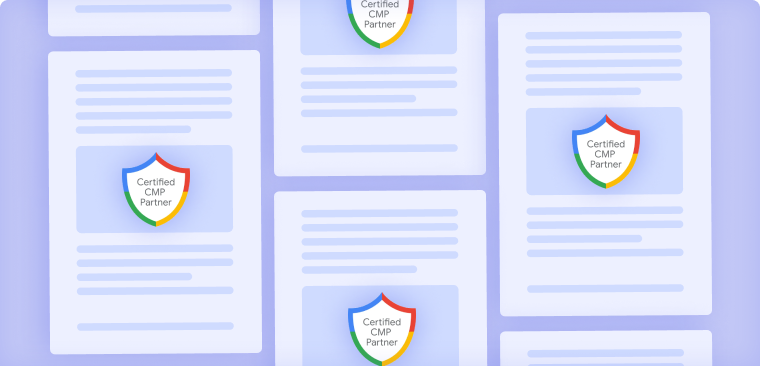Cookie Scripts 101: The Basics of Managing Website Cookies
October 22, 2025
•
3 min read
Table of contents
back
to the top
Cookie Scripts 101: The Basics of Managing Website Cookies
Whether you're managing a blog, an eCommerce site, or a global enterprise platform, there’s one thing your website likely has in common with millions of others: cookies.
Cookies help improve user experience, personalize content, track behavior, and deliver analytics. But in the age of GDPR, ePrivacy, and similar laws, you can't just drop cookies without user consent.
That’s where cookie scripts come in. In this article, we’ll break down what a cookie script is, how it works.
What Is a Cookie Script?
A cookie script is a piece of JavaScript code that manages the loading and blocking of cookies on a website. It's used to:
- Display a cookie banner or popup
- Detect and categorize cookies
- Ask for and store user consent
- Load or block cookies based on consent
The script works with a Consent Management Platform (CMP) or a standalone tool to ensure that no non-essential cookies (like tracking or marketing cookies) are activated until the user has given explicit consent.
How Cookie Scripts Work in Practice
Here’s a step-by-step breakdown of how a typical cookie script functions:
-
Website Loads the Script When a user lands on the site, the script initializes automatically.
-
Cookie Scan and Detection
The script scans for cookies already present on the site and categorizes them (e.g., necessary, analytics, marketing). -
Banner Displayed
A cookie banner is shown to the user, requesting consent for different categories. -
Consent Captured
The script records the user’s consent preferences (e.g., accept all, reject all, or customize). -
Cookies Blocked or Allowed
Based on the user’s selection, the script either blocks or allows the firing of specific cookies. -
Consent Stored and Recalled
The script stores the decision in a cookie (usually for 6–12 months) and recalls it on future visits.
Why Is a Cookie Script Important?
Using a cookie script isn’t just about checking a box—it’s a legal requirement in many jurisdictions. Laws like the GDPR, UK GDPR, and ePrivacy Directive mandate that websites:
- Get prior consent before setting non-essential cookies
- Provide clear options to manage consent
- Allow easy withdrawal of consent
Failure to comply can lead to serious fines and loss of user trust.
Can You Create Your Own Cookie Script?
Technically yes, but it comes with risks:
- You must continuously update the script as privacy laws evolve.
- You need to account for complex consent logic (e.g., geo-targeting, user preferences).
- Cookie categorization and blocking are hard to manage at scale.
For most businesses, especially SMBs and large enterprises, using a professional CMP with built-in cookie script functionality is far more efficient and legally safer.
Final Takeaway
A cookie script is more than just code, it’s the gateway to legal and ethical cookie use. It ensures users are in control and your business is on the right side of privacy regulations.
But instead of building your own from scratch, use a trusted CMP like CookiePal to deploy compliant, customizable, and powerful cookie scripts with zero coding stress.
Sources
GDPR ePrivacy Requirements on Cookies – CNIL
https://www.cnil.fr/en/cookies-and-other-tracking-devices
Google: Guide to Consent Mode and Cookie Management
https://support.google.com/tagmanager/answer/10718549
Explore further

Google Tag Manager and Cookie Consent: Stay Compliant Without Breaking Your Analytics
How to integrate Google Tag Manager with a Consent Management Platform to block non-essential tags, use Consent Mode, and stay GDPR-compliant.
August 27, 2025
4 min

Building a Strong GDPR Foundation: 10 Essential Documents
Explore 10 essential documents—policies, logs, assessments, and plans—your organization needs to prove transparent, legal, and accountable GDPR compliance.
July 21, 2025
4 min

Understanding Cookie Policies: A Comprehensive Guide for Website Owners
A clear cookie policy builds trust and ensures compliance. This guide covers key details, risks, and its difference from a privacy policy.
March 24, 2025
3 min



